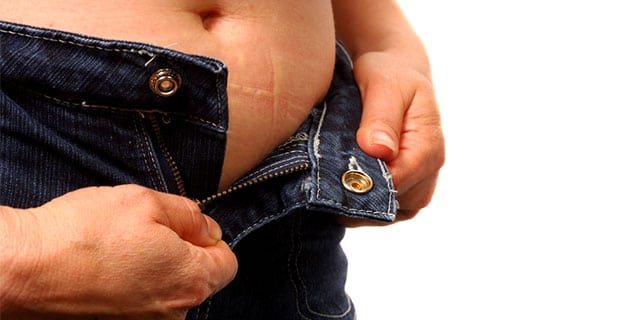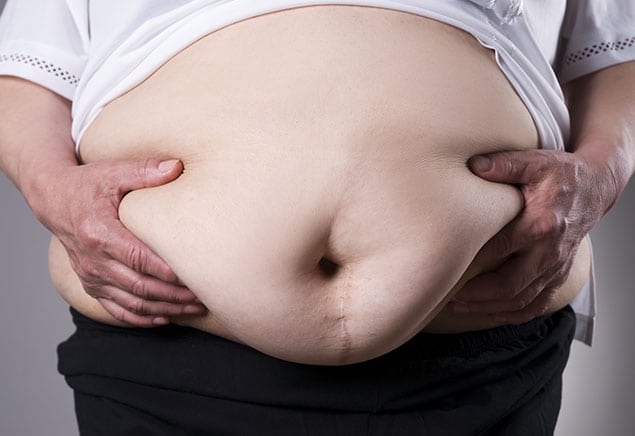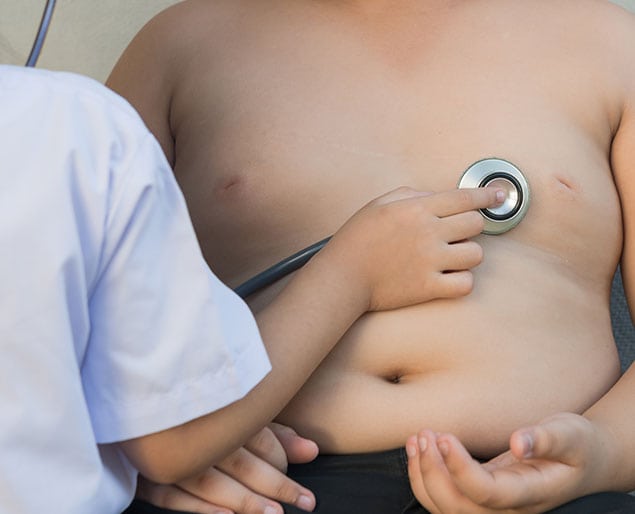
Let Riverside Weight Loss Surgery help with Hiatal Hernia Repair.
A hiatal hernia repair is performed in conjunction with a weight loss procedure for some patients. If this condition is discovered during weight loss surgery, it is often corrected or it may need to be addressed prior to a weight reduction procedure if the hernia is large enough and not responding to medication and other treatments.
- A hiatal hernia occurs when part of the stomach is pushed towards a small opening in the diaphragm.
- A hiatal hernia may result in the backup of food and acid into the esophagus.
CONTACT US TODAY
Obesity and Hiatal Hernia Formation
A hiatal hernias does not usually have a direct cause. Yet there are factors that may contribute to conditions to the development if one, including family history, or (genetics) and obesity. People who are seriously overweight have added internal pressure, which may be further aggravated by weight-related conditions such as high blood pressure and diabetes. The added pressure inside of the body may push the stomach and nearby fatty tissues to the point where a hernia forms. Chronic obesity may also weaken abdominal walls over time and contribute to the formation of multiple hernias or issues with how the body responds to other remedies to treat hernia symptoms.
Increased Hernia Repair Risks
When a hiatal hernia needs to be repaired, being excessively overweight may result in complications such as poor wound healing and an increased risk of infection. Excess weight may also make it difficult to reach the area where the hernia is located or place the stomach back into its correct position. It’s added difficulties like this that often result in a longer surgery time to repair the damaged tissues. Obese patients also have a higher risk of developing a blood clot after surgery to repair a hiatal hernia, referred to as deep venous thrombosis (DVT).


Losing Weight Prior to Hernia Repair
Unless hiatal hernia repair is immediately necessary, waiting until some weight is lost is often recommended. The weight loss itself may ease symptoms from a hiatal hernia or reduce the size of the bulge to the point where surgery is no longer necessary. If symptoms return, hernia repair may still be performed after some weight is lost following weight reduction surgery, or even along with a weight loss surgery. Weight loss prior to hernia repair may result in:
- Better mobility after surgery
- Faster wound healing
- Reduced risk of experiencing another hernia
Detecting Hernias Before Weight Loss Surgery
If you have a hiatal hernia that hasn’t been diagnosed or treated prior to weight loss surgery, it will likely be detected during your pre-surgery exam. In some situations, a hiatal hernia may be discovered during weight loss surgery. If surgery is necessary to repair it, it can sometimes be corrected from the stomach. A hernia may be suspected prior to weight loss surgery based on symptoms a patient is experiencing, which tend to get worse after meals, typically include chest pain, a burning sensation in the throat, heartburn, excessive burping, and nausea or vomiting. Confirmation of a hiatal hernia is usually made with a specialized X-ray to view the esophagus and stomach after dye is swallowed. Acid levels can be checked with a pH test.
Hiatal Hernia Repair and Treatment Options
Not all hiatal hernias require surgery. Many people have little or no symptoms. For obese people, added pressure from weight and underlying health issues may make symptoms become noticeable and potentially problematic. Medications are often prescribed to help manage heartburn and acid reflux or block acid production to allow the esophagus to naturally heal. If non-surgical treatments aren’t effective for a hiatal hernia that’s discovered prior to a weight loss operation, repair surgery may be necessary. Possible options include making the diaphragm smaller after the stomach is pulled back into its proper position in the abdomen and repairing a weak esophageal sphincter.
Due to the links between hiatal hernias and weight, successful weight loss surgery can significantly reduce the risk of experiencing hernias in the future. It’s benefits like this that provide an added incentive for weight loss patients to play an active role in maintaining results. Some of the healthy foods that are recommended as part of a post-surgery diet may naturally reduce acid production in the stomach and further minimize the risk of digestive issues and the formation of hiatal hernias. Certain forms of exercise often recommended for weight loss patients, such as yoga, can also help manage hernia symptoms.
To learn more about hiatal hernia repair, contact our office today.

